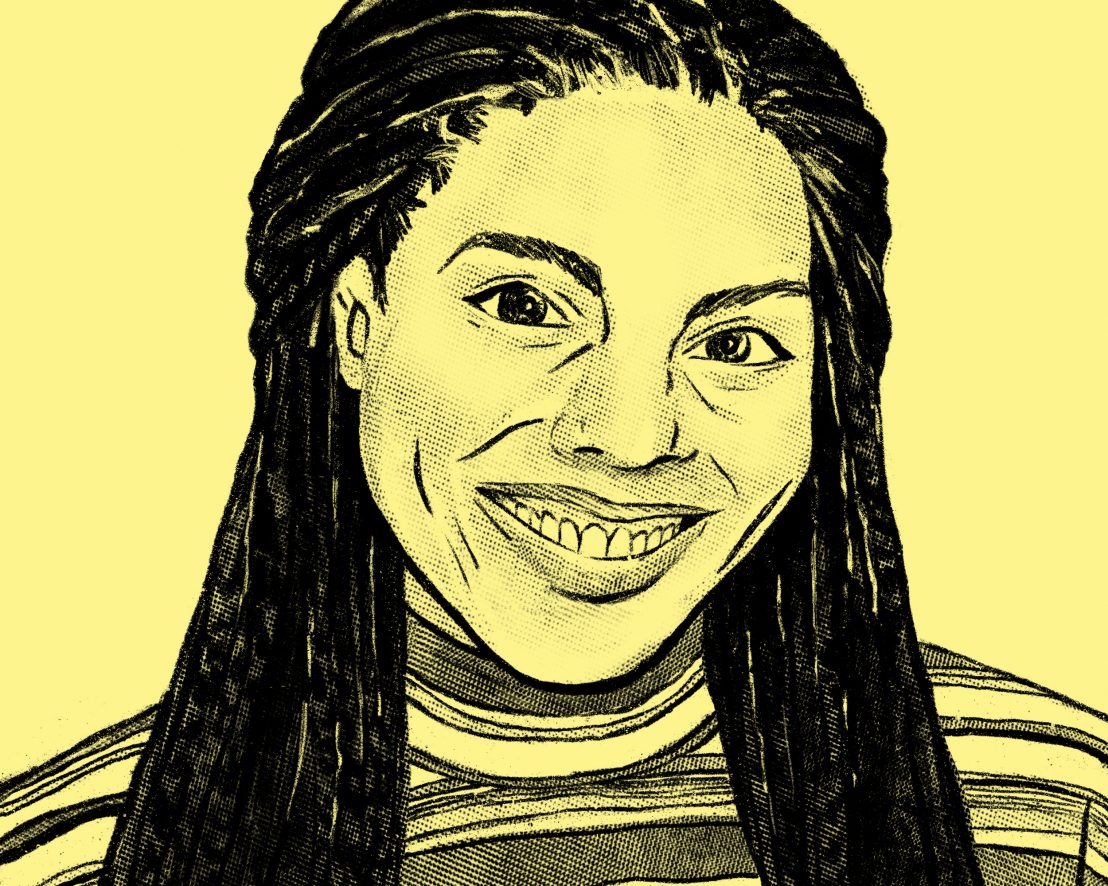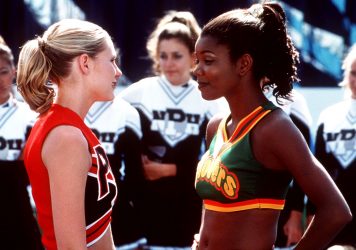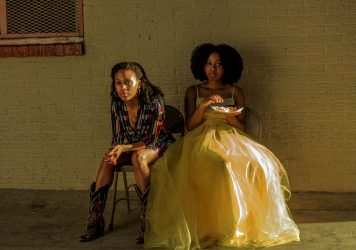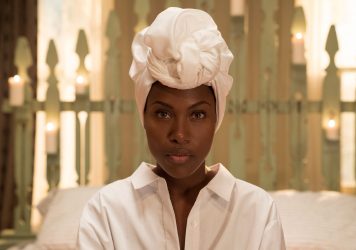
Don’t be fooled by the surface-level frivolity of Miss Juneteenth says its canny, thoughtful director.
Miss Juneteenth is the debut feature from writer/director Channing Godfrey Peoples. It focuses on the deferred dreams of former pageant queen Turquoise Jones (Nicole Beharie) and her plan to convince her daughter to secure the same crown and a university scholarship as she did.
LWLies: Could I start by asking you to explain what the Juneteenth pageant is?
Peoples: Juneteenth is a day to commemorate the fact that the enslaved people in Texas didn’t find out they were free until two-and-a-half years after everyone else. The emancipation proclamation happened in 1863, the enslaved people in Texas didn’t find out until 1865. Their freedom was kept hidden from them. As a kid it was the parades, the blues music, barbecue – I looked forward to the sense of community. As an adult, it became about reverence. You were asking me about the pageant?
What significance does it hold for you?
It was so special to me because it gave me a sense of confidence when I saw those young Black women. It looked like they were gliding across the stage. They had hope on their faces and a sense of wonder for their futures. It was my version of Miss America.
Going back to what you said about reverence, the film is almost haunting in some ways.
It’s funny you say that because I believe so much that the ancestors are ever-present. I’ve always been fascinated with lineage. In the South, you just accept that people that aren’t here still shape your life in the present. They still live through the oral tradition.
That makes sense to me. It’s kind of a language that can’t be taught. A way of communication that can’t be learned. It just is.
Yeah, I mean that gave me chills because so much of the film is like – it just is. I really wanted to capture this Black woman just living in her life. We come in where she’s poised to take a step forward and make a change.
The film focuses on Turquoise’s ability to imagine something more for herself, and if that doesn’t work out, then she can imagine something different. Her daughter has that same trait, but they’re misaligned even though they want the same outcome.
It was really important to find the rhythm of this mother-daughter relationship. The script was always built to focus on Turquoise’s journey, she’s in almost every scene. I really wanted us to tell a story about a Black woman with a dream deferred. Even if she can’t articulate exactly what it is, she wants something for herself. She’s reconciling her own dreams and ideas about herself with the hopes and dreams that she has for her child.
I became a mother not too long before we filmed. I had a tougher-love version of Turquoise on paper. But I think my personal perspective was that of a daughter. Then after becoming a mom, there were two things that I can remember: I remember being immediately joyful, but also there was this brushing terror. How do I take care of this little human being and provide for her future?
It was also reconciling the fact that I was going to be raising a young Black woman in the world, that often doesn’t support Black women. I was navigating a lot of what Turquoise is navigating.
Was there a tough-love version of the film, just because pageant moms are often thought of as resentful, yet Turquoise is so nurturing?
Definitely there was a tough-love version on paper, but my daughter changed so much. The thing that struck me was that indescribable sense of joy. When directing, I was constantly saying, ‘Okay, no matter what we do, we have to find the joy!’
How long did it take to get Miss Juneteenth made?
This will probably scare you, but I started to write the script seven years ago, just out of film school. I coincidentally met my creative partner there, who was one of the producers, Neil Creque Williams, who also happens to be my husband. We started a small writing group amongst friends. Through this writing group I was able to get the script out, Neil said okay let’s submit to different development programs. His idea was us being able to get notes to make the script better. I had written the script around the places and spaces that I grew up around, a story that we could just go and shoot ourselves. Then it started to go through different development programs. Through Sundance, we were introduced to more creative partners, who connected us to the financier.
Because I’d say it’s a quiet film, I was wondering if there was any pushback against that?
My producing partners and the financier were supportive in me being able to make that kind of story. I had the idea of what the tone would be in my head, but I think you never really understand until all the ingredients are together. I think for me as a director, naturalistic performances are so much a part of who I am as an artist. I’m trying to tell these human stories about Black folks in which people are able to have real conversations with each other. That contributed to the more delicate nature of the film. Telling the sound people, look we’re going to have to compensate because I’m not going to have people projecting. I want them to be talking to each other and hearing each other. I started out writing short stories and little poems, I came to cinema in a nontraditional way. I came through a small Black community theatre called Sojourner Truth. So I saw these complex Black plays there. Later on I would get into literature, Toni Morrison, Alice Walker and Dr Maya Angelou – all these different literary greats. They were telling some multilayered Black stories, with Black women leads. So looking back I get why there’s a poetic nature to the film.
Today’s the one year anniversary since Toni Morrison passed away. I pulled her books off the shelf this morning to re-read one.
I did that the other day too. I didn’t realise it was the anniversary. You know, you talk about haunting. It doesn’t even feel like she’s an ancestor. It just feels like she’s still here. I was trying to decide the other day, whether I was going to start reading ‘Sula’ again or ‘Song of Solomon’.
I was thinking ‘Beloved’. I’ve unfortunately only read it once at university, within a week!
I think we’ve been living parallel lives, because I remember hunkering down one summer like, ‘I’m going to read everything, Toni Morrison’s ever written’. Why did I think that I could do that? I saw her documentary recently, she was talking about getting up and writing before her kids were up, she wanted to be available to them. And that was such an inspiration for me, having my daughter my writing habits changed, it’s really built around her care. She was a giant among us, you know, what an inspiration. She’s one of the reasons I can get up and get going.
Absolutely. I read this quote from a Lucille Clifton interview and she was asked, how do you manage? I think she had six children. And she replied ‘Why do you think my poems are so short?’
I love that. I think as a writer before I was always writing in a nontraditional way, because I would hear dialogue first. So I just write down little lines, I just hear things and I write them down. Then there’ll be a photo or something that I’ll see, or even someone walking down the street and it’ll be the beginnings of the character
You’re like scrap booking, building a story that way. How about cinematic influences?
I really love, Charles Burnett, he did Killer of Sheep. I really loved My Brother’s Wedding. A lot of his work has that poetic nature that I was mentioning. His composition is so beautiful and his work is often about Black life happening and it’s really sensitive and nuanced. Now they have these websites where you can just go and see film stills, but I remember painstakingly screenshotting frame by frame of Killer of Sheep. I love Julie Dash’s Daughters of the Dust. I remember being moved by it, how she showed us a community that I hadn’t seen on film before. You have that sense of what we’re talking about, that oral tradition. I think I really had been in love more with filmmakers. I loved Jonathan Demme.
I loved Demme. I wrote one of my final university essays on him, ‘Is he a feminist filmmaker?’ But I just thought he had such a humanist eye.
And that’s what I loved about him! That humanist eye, his penchant for being able to show the details of the world. That’s such a big part of my work, being able to represent a world as authentically as possible. I think that there’s so much storytelling that can happen in the details and showing the details of the world, you know? Kasi Lemmon’s Eve’s Bayou was a film that I loved. There’s also another film that a critic reminded me of called Claudine.
I need to find it. It’s hard to get over here.
I’m sure, but I’d love to see what you think. It’s about a Black woman navigating motherhood, she just does it in this lovely graceful way.
I was thinking about how Black Texan culture is having a real moment in the spotlight. I love Beyoncé’s Homecoming, I love Megan Thee Stallion, the rise of the Black cowboy aesthetic online. How does it feel to be released in that context?
I love being from Texas. I love being from the South. You can see that in my work. I grew up in Black Texas and that defines its own sense of pride and history. I grew up in a place where the people lived with the sense of determination, you could see this grit about them, but they also carried themselves with grace. I’m proud of being able to represent this part of the South.
Often when there’s anything about a working class community, struggle equals ugliness or coldness. But that isn’t the case in Miss Juneteenth or a lot of working class communities
I love that you feel that from the film. The community that I grew up in opened their doors to me. The film wouldn’t feel as authentic without them. Where the film is set, it feels timeless, the bar is multigenerational. You go in there and get that sense of family. If people are finding a way to survive, it’s not always about the struggle, it’s about the connection and love between the people, and finding a way to these small moments of joy.
Published 23 Sep 2020

The cheerleading comedy has aged better than most early-2000s teen movies, especially in how it tackles systematic inequality and cultural appropriation.

Channing Godfrey Peoples’ feature debut is a stunning love letter to Southern Black culture.

Nola Darling is reborn in this vital update of Spike Lee’s 1986 film.